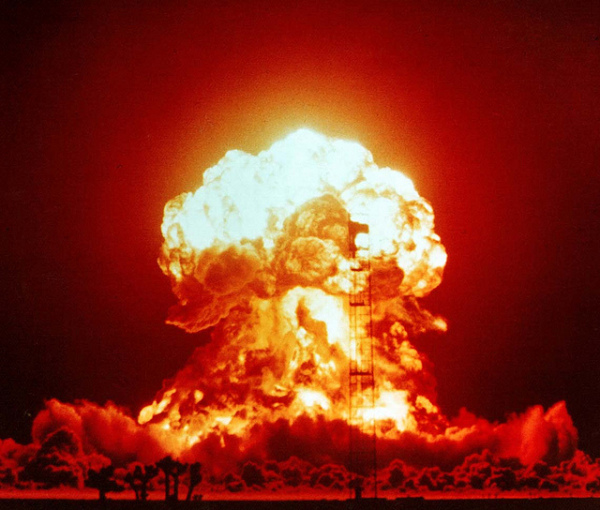The debate about the future of the UK’s nuclear weapon arsenal is back in the news with the election of the new leader of the Labour Party, Jeremy Corbyn, an avowed anti-nuclear campaigner and someone who has held senior positions in CND (the Campaign for Nuclear Disarmament) for years.
When on BBC Radio today, he said that he would never use nuclear weapons in the situation that he would be elected Prime Minister, politicians of all sides were quick to reply. His Defence Secretary, Maria Eagle said the comments were “not helpful” and his Foreign Secretary, Hilary Benn, said that the party’s decision was to renew the UK’s trident weapon system. These were the comments from senior members of his own party!
The Prime Minister, David Cameron took the opportunity to repeat for the thousandth time that Corbyn couldn’t be trusted with UK security.
All of these, and many other comments show how poorly informed the vast majority of the UK’s policy makers are about these weapons.
Only the Scottish Nationalists have a consistent anti-nuclear policy and quite understandable it is too given that the UK’s nuclear weapons are located on Scottish soil, dangerously close to Scotland’s two largest cities.
For those of us who are plugged-in to the nuclear weapons debate, having listened to and read so much information on the subject, the need to give up nuclear weapons is as obvious as the nose on our faces. And it is increasingly obvious that those who hold an alternative position are completely uninformed.
Politicians, the media and commentators who believe the UK should retain its nuclear capability use arguments such as the need for the UK to have a “nuclear deterrent”, as if the Falklands/Malvinas War, the Iraq War, 9/11 and the Cuban Missile Crisis had been deterred by one or other side of the conflict having nuclear weapons.
They seriously consider the idea that the UK could launch a nuclear weapon against a defenceless civilian population of another country, having no idea what horror and suffering such a detonation would unleash.
They believe that if the UK is hit by a nuclear weapon then it could be useful to retaliate with one of their own, totally oblivious to the fact that if a nuclear war really were to start then just 100 bombs targeted on cities would be enough to kill upwards of 1 billion human beings from the effects of a nuclear winter and bring an end to human civilisation as we now know it.
They ignore the cases of near misses and accidents that have brought us perilously close so many times to the brink of intended and unintended nuclear explosions, in some cases leaving several square kilometres of land contaminated.
They ignore declarations by the Red Cross and Red Crescent movements who say that nuclear weapons are not compliant with International Humanitarian Law and that there is no way to provide a humanitarian response to a nuclear explosion.
They also ignore the offensive costs involved in maintaining and modernising weapons which could instead be better spent on creating high-tech, innovative, environmentally-friendly engineering jobs that could transform the country into a world leader of renewable energy technology.
“Our influence in the world will be undermined if we give up our weapons,” they say. But does the UK really want to have influence in the world based on its ability to destroy the planet? Wouldn’t it be far better to have influence because of the demonstration effect it gives to the world in the excellence of its public services, its advancing of human rights, its solidarity with the world’s poor and refugees, and its leadership in global conflict resolution? Wouldn’t this be a more interesting and ultimately more fulfilling way to exert influence?
If it is not the case that policy makers are badly informed about these subjects then it must be concluded that they are in denial or benefiting financially, in which case they should not be in public service.
In the first NPT conference I attended in 2009 in New York, a British diplomat said off-the-record that the UK would not give up its nuclear weapons while France maintained them. This is the level of absurdity and immaturity that exists in UK diplomatic circles regarding these weapons of mass destruction. The UK is still at war with Napoleon!
While it is imperative that the USA and Russia disarm progressively and proportionately, including all other nuclear weapons states in the process – and by this I don’t mean fooling ourselves into believing that there is progress in the five-yearly NPT review circus which has taken us nowhere in the last forty-five years – in the absence of such a process the British people need to rally around Corbyn’s position because it is the only one that is a) compliant with the UK’s treaty obligations and with International Humanitarian Law, and b) moral.






